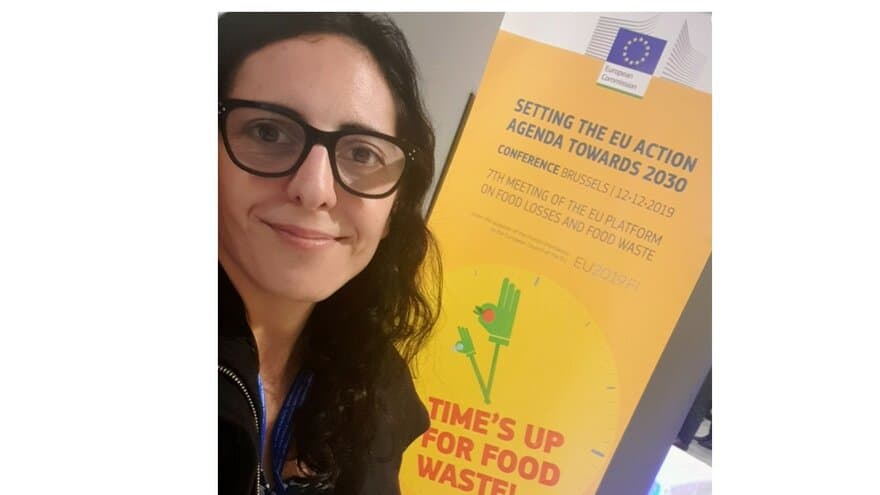Project leader at Matsentralen Norge
Education: Master in Agroecology
Can you tell us about your current job?
Matsentralen Norge is the umbrella organization for the Norwegian food banks. The goal of the Norwegian food banks is to reduce both food waste and poverty; this by rescuing surplus food that would otherwise be thrown away and redistributing the food through more than 400 non-profit organizations helping people in need. In 2021 the eight food banks in the network rescued and redistributed more than 4000 tonnes of food.
I started working in Matsentralen Norge in 2017 when the network only had two food banks. I was hired to help escalate the model of the food bank in Oslo to other cities in the country and explore different models for rescue and redistribution of surplus food. My duties also included fundraising, communication and coordination of local and national projects. Through my role, I also participate in several international platforms and research projects for food waste reduction, including the European Federation of food banks and the EU Platform on food losses and waste. Furthermore, I get to work very close to actors such as the Norwegian Department of Food and Agriculture, The European Comission and FAO.
What was the path like from high school to the job you have today?
I became concerned about the problem of food waste during my Bachelor studies on International environment and development (NMBU). During this time I got involed as a volunteer in a local environmental organization where we rescued surplus food from local supermarkets. During my Master studies, in addition to the courses at NMBU, I took also courses on food and consumption and food and globalization at the University of Oslo and Oslo Met. A couple of years later, when exploring options for my Master thesis, I received very good advice from a friend and former agroecologist: She suggested I should look into the many research institutes in Ås and find a couple of projects that I thought were interesting, and that way, find a mentor and/or sponsor for my thesis. So I did. I was lucky to get two positive responses: One from a research institute and one from the Food Bank in Oslo. I went for the latter and a year later published my master thesis on "Reducing food waste through direct surplus food redistribution : the Norwegian case".
Once I finished my studies I worked as a free-lance consultant for Foodlist, an app to reduce food waste and later at Bestfør, a supermarket that sold surplus food in Ås. Two years later, I got a job as consultant for the Norwegian environmental organization "The future in our hands". During this time I wrote and published the report "Norwegian supermarkets and food waste". By the end of the year, I received a call from Matsentralen Oslo, who was looking for someone to help them establish the umbrella organization and replicate the succesful experience of Oslo, in other parts of the country. It has been an amazing journey since then!
What is your opinion about the student community at NMBU?
Both the student community garden and the student-project were we were rescuing surplus food from local supermarkets were crucial in the start of my interest for sustainable food systems. Later during my Master studies, the diversity in the background of the students gave me also the chance to develop strong holistic, collaborative and system-thinking skills
Do you have any advice to future students?
Engage! Whether it is as a volunteer in an organization, as a trainee at a company or just through your social media, don't waste time! Get involved in whatever you feel strongly for, express your opinion, discuss with those that you agree with and those you don't. Get out there and "be the change you want to see in the world".
How do you / your job / your workplace contribute to the work of achieving the UN's sustainability goals?
The holistic and interdicipinary approach of NMBU shows that UNs sustainability goals are all connected, and often, when working towards one, one touches also upon others. The agrocology program trained us as "agents of change" and as such, we can be very valuable tools towards the transition to a more sustaiunable world.
